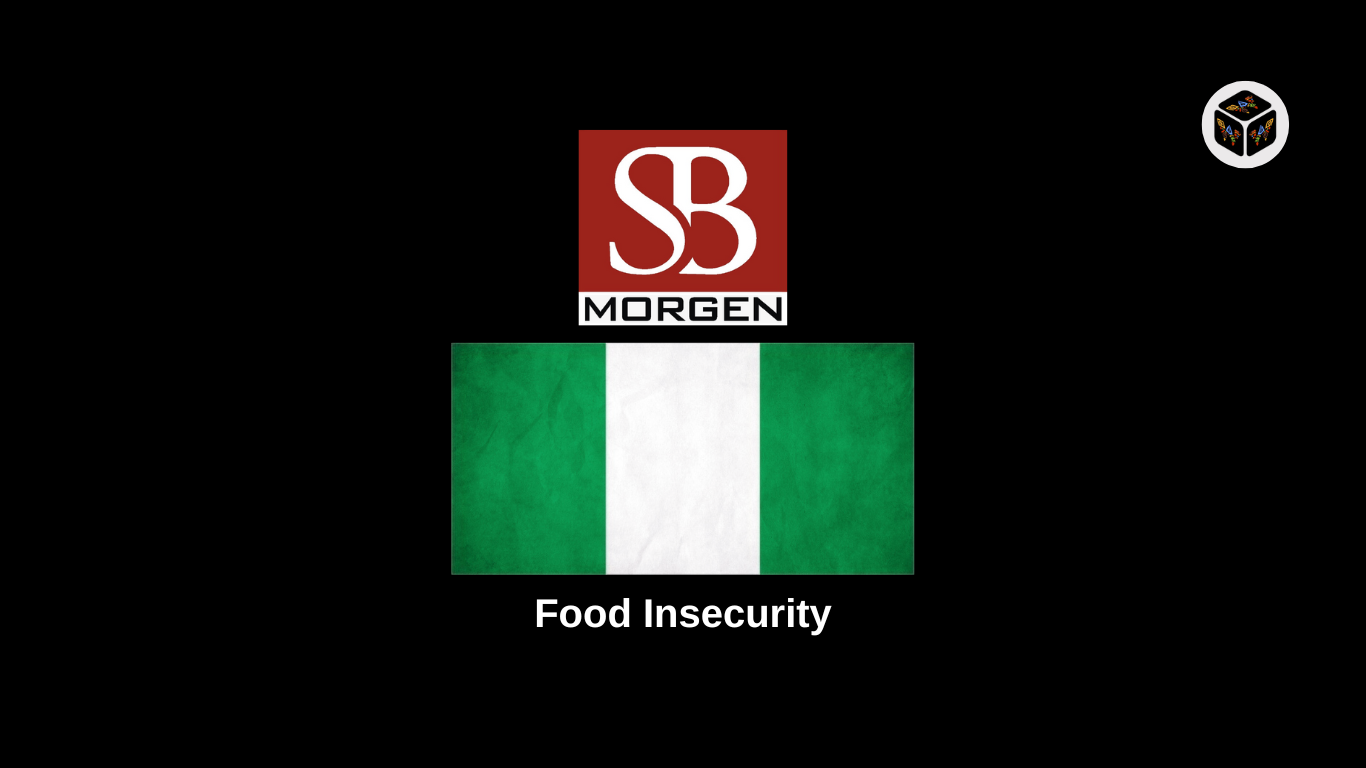
Terrorists Contribute to Food Insecurity in Nigeria – SBM Report Shows

A report by SBM Intelligence, an Africa-focused intelligence gathering and consulting firm, has revealed that terrorists impose levies on agricultural communities in the Middle Belt and Northern Nigeria which has contributed substantially to food insecurity in the country.
According to SBM, the levies are imposed mainly by armed non-state actors, including Boko Haram, ISWAP, Fulani militia and other undesignated terrorist groups in the country.
These illegally imposed levies on farmers and transporters across six states, including Sokoto, Niger, Zamfara, Kastina, Kano, are part of the leading causes of food hikes in the country.
According to SBM, Sabon Birni in Sokoto State payid ₦69.3 million. Kaduna and Niger, on their proximity borders in Chikun, Birnin Gwari, and Shiroro, paid the sum of ₦12 million.
In Kastina and Zamfara, Kaura Namoda, Zurmi, Jibia, Bastari, Dustin Ma, Safana, Anka, Gusau, Tsafe, Maru, and Bukkuyum, collectively paid ₦139.45 million.
The six states reportedly paid Ν363.74 million as levies imposed by terrorists.
Ripple Effect of the Imposed Levies
The financial burdens of these levies has ripple effects on farmers, many of whom often operate on tight budgets. It has also encouraged overreliance on food imports over locally produced farm products.
In addition, the threat of violence and intimidation by extremist groups have caused farmers to abandon their farmlands which has resulted in a decreased number of farmers working to promote local food production and food security.
This has discouraged agricultural investments and slowed down the country’s economic output.
Essentially, this has left consumers with food scarcity and increased food prices.
Meanwhile, state governors including these states remain responsible for protecting lives and propertiesof citizens with no exception to farmers’ protection.
According to SBM, the levies are imposed mainly by armed non-state actors, including Boko Haram, ISWAP, Fulani militia and other undesignated terrorist groups in the country.
These illegally imposed levies on farmers and transporters across six states, including Sokoto, Niger, Zamfara, Kastina, Kano, are part of the leading causes of food hikes in the country.
According to SBM, Sabon Birni in Sokoto State paid ₦69.3 million. Chikun, Birnin Gwari, and Shiroro in Kaduna and Niger states collectively paid the sum of ₦12 million.
In Kastina and Zamfara, Kaura Namoda, Zurmi, Jibia, Bastari, Dustin Ma, Safana, Anka, Gusau, Tsafe, Maru, and Bukkuyum, collectively paid ₦139.45 million.
In total, the six states reportedly paid Ν363.74 million as levies imposed by terrorists.
Ripple Effect of the Imposed Levies
The financial burdens of these levies has ripple effects on farmers, many of whom often operate on tight budgets. It has also encouraged overreliance on food imports over locally produced farm products.
In addition, the threat of violence and intimidation by extremist groups has caused farmers to abandon their farmlands which has resulted in a decreased number of farmers working to promote local food production and food security.
This has discouraged agricultural investments and slowed down the country’s economic output. Ultimately, this has left consumers with food scarcity and increased food prices.
About The Author
Mayowa Durosinmi
author
M. Durosinmi is a West Africa Weekly investigative reporter covering Politics, Human Rights, Health, and Security in West Africa and the Sahel Region
Mayowa Durosinmi
M. Durosinmi is a West Africa Weekly investigative reporter covering Politics, Human Rights, Health, and Security in West Africa and the Sahel Region
Related Articles
Tinubu Government Delays Release of Signed Tax Acts to the Public
Four days after President Bola Tinubu announced the signing of four tax...
ByMayowa DurosinmiJune 30, 2025As Tinubu Urges Africa-Caribbean Unity in Saint Lucia, Over 272 Nigerians Killed in June Alone
While Nigerians deal with deadly violence, worsening hunger, and mass flooding, President...
ByWest Africa WeeklyJune 30, 2025You Can’t Tax a Dead Economy: Nigeria Is Suffocating Under Its Own Policies
As Nigeria’s Central Bank clings to its benchmark interest rate of 27.5...
ByWest Africa WeeklyJune 30, 2025“Wike is Not a Blessing to Us, He’s a Disaster” — Workers Protest in Nigeria’s Capital Over Unpaid Wages, Poor Working Conditions
Staff members of the Federal Capital Territory Administration (FCTA) in Abuja barricaded...
ByOluwasegun SanusiJune 30, 2025











